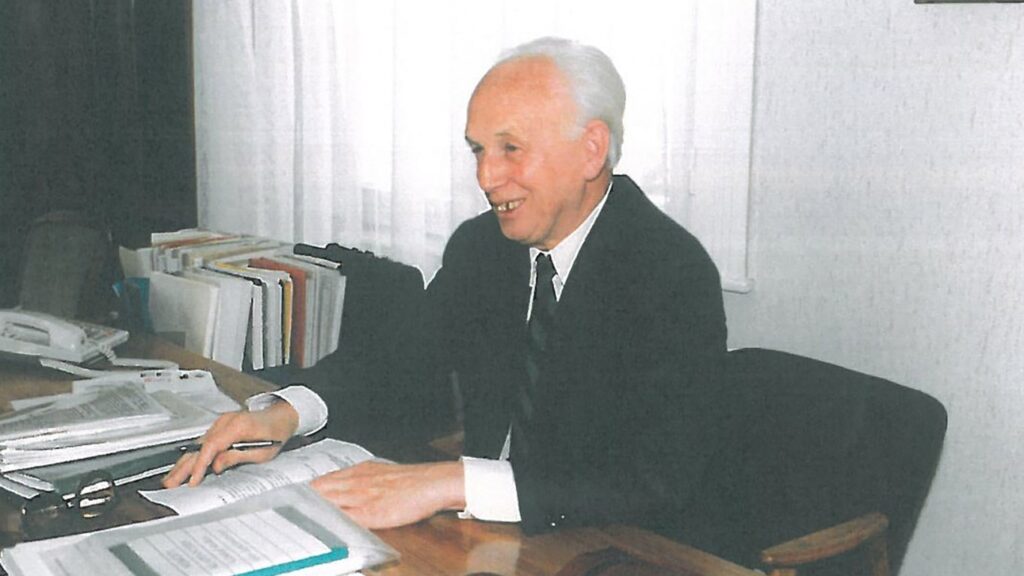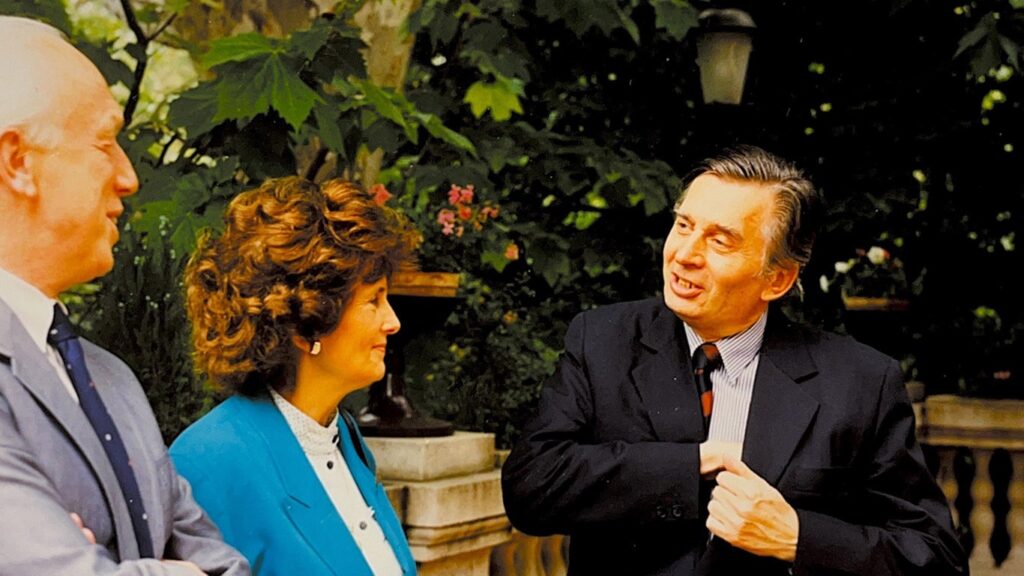It is hardly known, but Professor Mádl argued for the strengthening of Western European relations and the need for systemic change in his 1988 inaugural speech at the Hungarian Academy of Sciences, recalling the ideas of one of his most important role models, Count István Széchenyi. At the time, he was addressing academics, but shortly afterwards he made a clear commitment to support pro-change political forces. “He was waiting to be addressed with a gun at his feet” – recalled a comment made at the time by his close friend and fellow teacher Professor János Martonyi (later a well-known foreign minister in Viktor Orbán’s governments) This soon happened, and in 1990 he was able to begin his public career as a member of József Antall’s government.
From 1990 until early 1993, as minister without portfolio, he was mainly concerned with science policy and privatisation, but for a time he also led the negotiations on the Gabcikovo-Nagymaros Water Dams. In a short time, he became a close confidant of Antall, who entrusted him with the Ministry of Culture and Public Education in a government reshuffle in early 1993. Sitting in the chair of two of his important idols, József Eötvös and Loránd Eötvös, Mádl saw his main task as laying the legal foundations for the new institutional system. Thanks to his decades of experience in legal codification, he was responsible for the drafting and preparation of the most important sectoral laws (public education, higher education, hungarian academy of sciences) and regulations. Although he had previously excelled in a number of difficult areas, it seems clear from the available sources that Mádl’s greatest successes as a politician were achieved as Minister of Culture.

